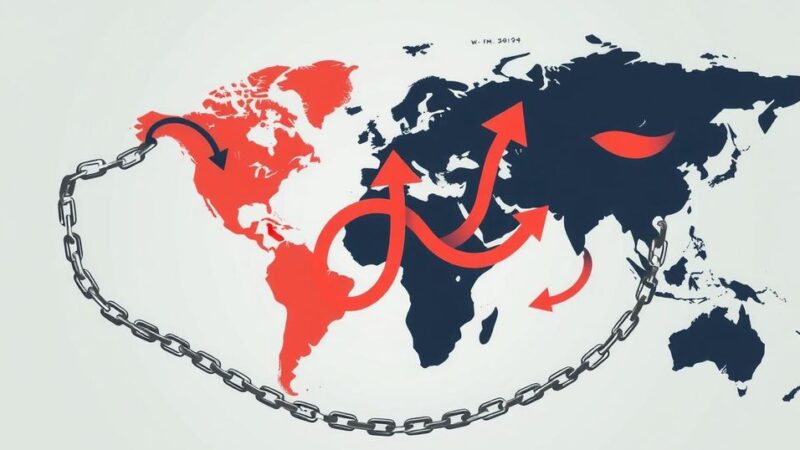Saudi Arabia, the UAE, and Qatar have decided to deny Israel access to their airspace to prevent military actions against Iran, citing concerns over retaliatory strikes on oil facilities. These nations are also lobbying the United States to intervene and maintain stability in the region as tensions rise between Israel and Iran.
Recent developments indicate that several nations within the Persian Gulf, particularly Saudi Arabia, the United Arab Emirates, and Qatar, have collectively decided to restrict Israel’s access to their airspace. According to a report by Reuters, these countries aim to prevent Israel from launching any military operations against Iran from their territories and have communicated this stance to the United States. Concerns have been raised that Iranian forces or affiliated resistance groups may retaliate against their oil production facilities if Israel were to initiate strikes on Iran. The tensions have escalated, with threats exchanged between Israel and Iran. Iran had previously executed a significant missile operation targeting Israeli military and intelligence infrastructures in response to Israeli actions perceived as aggressions against Iran’s leadership. Amidst this backdrop, a key Saudi analyst remarked to Reuters that any opening of airspace to Israel by the Gulf states would be perceived as a declaration of war by Iran. The Persian Gulf nations are reportedly lobbying the United States to intervene and halt any potential Israeli aggression directed at Iranian oil infrastructure. Given the importance of oil exports to these nations, particularly Saudi Arabia, there is a strong imperative to avoid heightened conflict that could disrupt global oil markets and, consequently, international supply chains.
The geopolitical landscape in the Middle East is frequently influenced by the contentious relationships among regional powers, particularly between Iran and states allied with the West, notably Israel. The Persian Gulf states, which include major oil exporters, have a vested interest in maintaining stability to avoid any disruptions that could affect their oil production and exports. Iran’s military activities and threats against Israel have raised alarms in these nations, leading to heightened security measures and diplomatic maneuvers to insulate themselves from potential spillover effects of Israeli-Iranian conflicts. The historical context of conflict and the strategic importance of oil supplies contribute significantly to the attitudes of Gulf states toward Israeli military operations.
In summary, the decision by Saudi Arabia, the United Arab Emirates, and Qatar to block Israeli access to their airspace marks a significant step in regional diplomacy aimed at deterring potential conflicts with Iran. The implications of maintaining stability in the Persian Gulf are critical, underscored by the need to protect oil facilities from retaliatory actions. Continued diplomatic engagement with the United States will be integral for these nations as they navigate the complexities of escalating tensions between Israel and Iran while striving to safeguard their economic interests.
Original Source: www.presstv.ir







